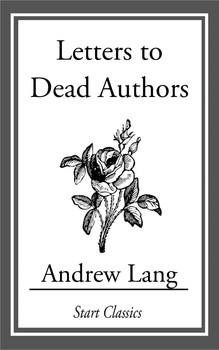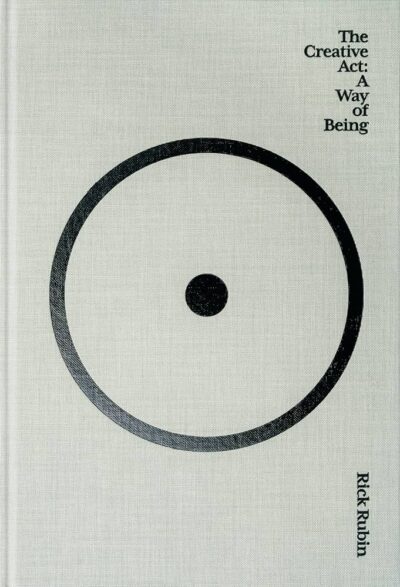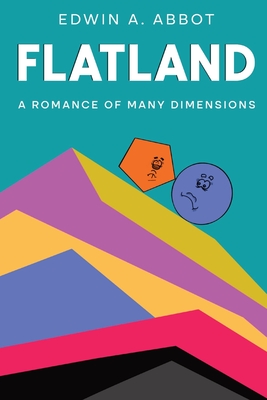182 Results with the "Philosophical" genre
Adventure Fiction (1164)
Biography (435)
Business & Finance (1)
Children's Literature (124)
Comics (6)
Culture (51)
Drama (123)
Dystopian (29)
Fable (86)
Fantasy (1132)
Fantasy (203)
Fiction (1010)
Finance (1)
Gothic Fiction (12)
Historical Fiction (615)
History (122)
Horror (56)
Lifestyle (36)
Literary (404)
Literary Fiction (207)
Memoir (113)
Mystery (422)
Non-fiction (87)
Novel (549)
Paranormal Fiction (96)
Philosophy (45)
Poetry (249)
Political Fiction (14)
Politics (42)
Practical (32)
Psychological (4)
Psychological Thriller (108)
Relationship (6)
Romance Novel (716)
Romantic Melodrama (14)
Satire (91)
Science (46)
Science Fiction (345)
Self-help (68)
Society (65)
Society (2)
Spiritual Growth (1)
story (2)
Thriller (704)
True Crime (56)
view (11)
Women's Fiction (2)
Young Adult (233)
-
Story
Never Let Me Go
 In Never Let Me Go, Kazuo Ishiguro weaves a haunting and introspective tale set in an alternate-reality 1990s England, where Kathy H., a carer, reflects on her childhood at Hailsham, an idyllic yet unsettling boarding school. As Kathy reunites with her former classmates Ruth and Tommy, she confronts the dark truth about their existence: they are clones, created solely to provide organ donations for “normal”…
In Never Let Me Go, Kazuo Ishiguro weaves a haunting and introspective tale set in an alternate-reality 1990s England, where Kathy H., a carer, reflects on her childhood at Hailsham, an idyllic yet unsettling boarding school. As Kathy reunites with her former classmates Ruth and Tommy, she confronts the dark truth about their existence: they are clones, created solely to provide organ donations for “normal”…-
2.1 K • Jul 23, '25
-
2.4 K • Jul 23, '25
-
2.5 K • Jul 23, '25
-
-
Chapter
LETTER–To W. M. Thackeray
 Letter to W. M. Thackeray opens with a tone free of rivalry or self-interest, allowing full appreciation of a writer whose literary grace has outlived the age that birthed it. Your work is remembered not as a product of duty, but of inspiration that struck with the urgency of truth. Unlike those who approach writing as mere occupation, you shaped your stories with the spirit of a wanderer who observed life from within and without. Critics who dismissed your vision as cold or cynical misunderstood the…
Letter to W. M. Thackeray opens with a tone free of rivalry or self-interest, allowing full appreciation of a writer whose literary grace has outlived the age that birthed it. Your work is remembered not as a product of duty, but of inspiration that struck with the urgency of truth. Unlike those who approach writing as mere occupation, you shaped your stories with the spirit of a wanderer who observed life from within and without. Critics who dismissed your vision as cold or cynical misunderstood the…-
82.9 K • Ongoing
-
-
Story
The Ways of Men
 The Ways of Men by Eliot Gregory is a novel that examines the complexities of human nature and relationships as a young man grapples with societal expectations, personal ambition, and moral dilemmas in his pursuit of self-discovery.
The Ways of Men by Eliot Gregory is a novel that examines the complexities of human nature and relationships as a young man grapples with societal expectations, personal ambition, and moral dilemmas in his pursuit of self-discovery.-
4.1 K • Nov 8, '24
-
4.0 K • Nov 8, '24
-
4.0 K • Nov 8, '24
-
-
Chapter
Chapter 32 — A Nation in a Hurry
 Chapter 32 - A Nation in a Hurry begins with a telling comparison between American life and that of Europe. Returning home after time abroad, one is immediately struck by the heightened tempo of daily life in the United States. From the bustling activity on the docks to the way people rush their meals, the national obsession with speed is unmistakable. It permeates everything—how business is done, how people talk, even how they relax. The story about steamboat captains placing someone on the safety valve…
Chapter 32 - A Nation in a Hurry begins with a telling comparison between American life and that of Europe. Returning home after time abroad, one is immediately struck by the heightened tempo of daily life in the United States. From the bustling activity on the docks to the way people rush their meals, the national obsession with speed is unmistakable. It permeates everything—how business is done, how people talk, even how they relax. The story about steamboat captains placing someone on the safety valve…-
151.7 K • Ongoing
-
-
Chapter
Practice
 Developing a heightened awareness of one’s surroundings is an invaluable practice for artists, creatives, and individuals seeking to live with greater presence and purpose. In nature, animals focus intently on survival, their attention honed on securing food, shelter, and safety. However, for human beings, particularly those engaged in artistic pursuits, a narrow focus can sometimes be limiting rather than helpful. Creativity thrives on an expansive perspective, one that absorbs and synthesizes…
Developing a heightened awareness of one’s surroundings is an invaluable practice for artists, creatives, and individuals seeking to live with greater presence and purpose. In nature, animals focus intently on survival, their attention honed on securing food, shelter, and safety. However, for human beings, particularly those engaged in artistic pursuits, a narrow focus can sometimes be limiting rather than helpful. Creativity thrives on an expansive perspective, one that absorbs and synthesizes…-
341.4 K • Ongoing
-
-
 Life often unfolds in ways that defy our expectations, presenting challenges that force us to confront uncertainty head-on. A treasured manuscript may be lost to an unexpected disaster, a deeply cherished relationship may dissolve without warning, or a secure career path may suddenly veer into the unknown. These moments, while painful, invite a shift in perspective—one that embraces "connected detachment." This approach does not call for emotional indifference but rather encourages us to step back and…
Life often unfolds in ways that defy our expectations, presenting challenges that force us to confront uncertainty head-on. A treasured manuscript may be lost to an unexpected disaster, a deeply cherished relationship may dissolve without warning, or a secure career path may suddenly veer into the unknown. These moments, while painful, invite a shift in perspective—one that embraces "connected detachment." This approach does not call for emotional indifference but rather encourages us to step back and…-
341.4 K • Ongoing
-
-
Chapter
The Gatekeeper
 Within the creative process, every idea must pass through a crucial checkpoint—the gatekeeper, often recognized as the editor. This individual wields significant influence, shaping how a final piece of work is presented to the world, functioning as both a curator and a sculptor of raw ideas. The editor’s primary role is to enhance the most vital aspects of a creation while stripping away unnecessary elements, refining it into its most impactful and polished form. Editing is not just a mechanical…
Within the creative process, every idea must pass through a crucial checkpoint—the gatekeeper, often recognized as the editor. This individual wields significant influence, shaping how a final piece of work is presented to the world, functioning as both a curator and a sculptor of raw ideas. The editor’s primary role is to enhance the most vital aspects of a creation while stripping away unnecessary elements, refining it into its most impactful and polished form. Editing is not just a mechanical…-
341.4 K • Ongoing
-
-
Chapter
LETTER–To Edgar Allan Poe
 Letter to Edgar Allan Poe opens with a reflection on the peculiar hostility that followed Poe even after death, especially from fellow American writers. While many hailed him as a literary master abroad, his own country often treated him with skepticism. This may have been fueled by his sharp criticism and bold commentary, which spared no one. Poe’s honesty in literary reviews unsettled a scene unprepared for such directness. In doing so, he gained as many enemies as admirers. It is ironic that a man of…
Letter to Edgar Allan Poe opens with a reflection on the peculiar hostility that followed Poe even after death, especially from fellow American writers. While many hailed him as a literary master abroad, his own country often treated him with skepticism. This may have been fueled by his sharp criticism and bold commentary, which spared no one. Poe’s honesty in literary reviews unsettled a scene unprepared for such directness. In doing so, he gained as many enemies as admirers. It is ironic that a man of…-
82.9 K • Ongoing
-
-
Chapter
Chapter 11 — A Cry For Fresh Air
 Chapter 11 - A Cry For Fresh Air casts a striking metaphor over modern life, likening our dependence on artificial comfort to a fairy tale curse. In a world where fire and warmth were once cherished blessings, they have now become overused indulgences that stifle health and dull the senses. The blessings of modern inventions—meant to improve living standards—have brought unexpected costs. With the rise of central heating and sealed buildings, fresh air is not just rare, it's avoided. Children once…
Chapter 11 - A Cry For Fresh Air casts a striking metaphor over modern life, likening our dependence on artificial comfort to a fairy tale curse. In a world where fire and warmth were once cherished blessings, they have now become overused indulgences that stifle health and dull the senses. The blessings of modern inventions—meant to improve living standards—have brought unexpected costs. With the rise of central heating and sealed buildings, fresh air is not just rare, it's avoided. Children once…-
151.7 K • Ongoing
-
-
 Section 11 opens by revealing a tightly guarded secret: the full truth of Flatland is known only to the Chief Circle. This knowledge is passed down only once, from one Chief to his chosen successor, just before death. Even the factory responsible for maintaining this secret takes no chances—its workers are regularly replaced to eliminate any risk of exposure. Each year, those who labored are destroyed, and new individuals are brought in. Such measures reflect the extent to which power in Flatland is…
Section 11 opens by revealing a tightly guarded secret: the full truth of Flatland is known only to the Chief Circle. This knowledge is passed down only once, from one Chief to his chosen successor, just before death. Even the factory responsible for maintaining this secret takes no chances—its workers are regularly replaced to eliminate any risk of exposure. Each year, those who labored are destroyed, and new individuals are brought in. Such measures reflect the extent to which power in Flatland is…-
92.9 K • Ongoing
-
- Previous 1 … 5 6 7 … 19 Next
